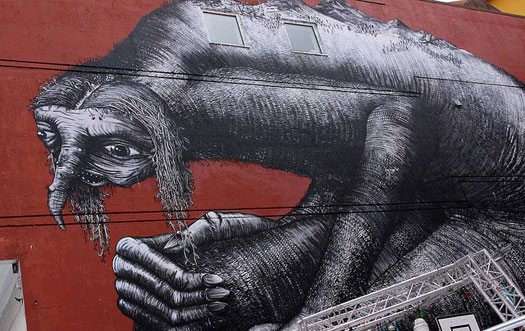
July 19, 2017; Reveal (Center for Investigative Reporting)
In Moby Dick, the search for the white whale consumed the life of Captain Ahab. Catherine Engelbrecht and the nonprofit organization she founded, True the Vote, search with the same passion for millions of illegal voters she believes lie hidden below the surface of the voter counts that determine American election outcomes. While finding that great quarry is proving very difficult, the political impact of these unfounded charges was in full view when the President’s Advisory Commission on Election Integrity held its first meeting last week.
True the Vote, formed in 2009, describes itself as “the nation’s largest nonpartisan, voters’ rights and election integrity organization. True the Vote exists to inspire and equip volunteers for involvement at every stage of America’s electoral process.” When Donald Trump, shortly after the votes were counted, took up the banner of this quest when he tweeted, “In addition to winning the Electoral College in a landslide, I won the popular vote if you deduct the millions of people who voted illegally,” True The Vote leapt forward to lead the effort to find the “smoking guns” that would prove him correct.
True the Vote absolutely supports…Trump’s recent comment about the impact of illegal voting, as reflected in the national popular vote. We are still collecting data and will be for several months, but our intent is to publish a comprehensive study on the significant impact of illegal voting in all of its many forms and begin a national discussion on how voters, states, and the Trump Administration can best address this growing problem.
For other researchers, proof of voter fraud has been very difficult to find. Prior to President Trump making it more than a fringe issue, numerous peer-reviewed studies had been unable to find any evidence of widespread problems. As the Brennan Center for Justice reported back in January, “most reported incidents of voter fraud are actually traceable to other sources, such as clerical errors or bad data matching practices. The report reviewed elections that had been meticulously studied for voter fraud, and found incident rates between 0.0003 percent and 0.0025 percent.” Given this tiny incident rate, it is more likely, the report noted, that an American “will be struck by lightning than that he will impersonate another voter at the polls.”
Sign up for our free newsletters
Subscribe to NPQ's newsletters to have our top stories delivered directly to your inbox.
By signing up, you agree to our privacy policy and terms of use, and to receive messages from NPQ and our partners.
But that was no reason for True the Vote to end its quest. Following Trump’s victory, True the Vote board member Gregg Phillips claimed to have the proof that had escaped other researchers in November 2017, stating he had “completed analysis of database of 180 million voter registrations [and] found that the number of non-citizen voters exceeds 3 million.” But he neglected to share the data in his database for others to study. True The Vote later committed, in a fundraising appeal, to hiring a team of “world-class technologists, researchers, data miners, statisticians, scholars, analysts, and subject matter experts. This isn’t B-team stuff. The integrity of our election is too important.” Six months later, they are still claiming that their assertions are true and that the facts will shortly be available.
And despite no smoking gun, the strength of their belief has only grown stronger. Phillips recently told Reveal that “for the first time in my life, and I’ve been involved in election integrity for decades, the question is no longer if there was fraud. The question is: How many people were disenfranchised by illegal votes?”
For the organization, a presidential nod has not translated into more support. In a video released to their members, Engelbrecht explained why results have not matched their beliefs: “As it stands, we do not have the funding to do what we want to do. We’ve gathered 2016 voter rolls, we’ve gathered information from thousands of [Freedom of Information Act requests], but we’re limited by the lack of resources. Next steps up are for us to sort of pull back on the national audit, and focus on targeted investigations.”
Despite the growing erosion of their organizational strength and the lack of evidence they have been able to produce, concern about voter fraud has not ceased to be a political issue. The lack of data did not stop President Trump from telling the first public meeting of his election commission that there were problems “having to do with very large numbers of people in certain states.” Nor has it stopped efforts to make it harder to register and vote in state houses across the nation. And, given its membership, it may not be enough to stop the president’s Commission from continuing to stoke the myth of stolen elections. When facts fail to change minds, we have much to fear.—Martin Levine













